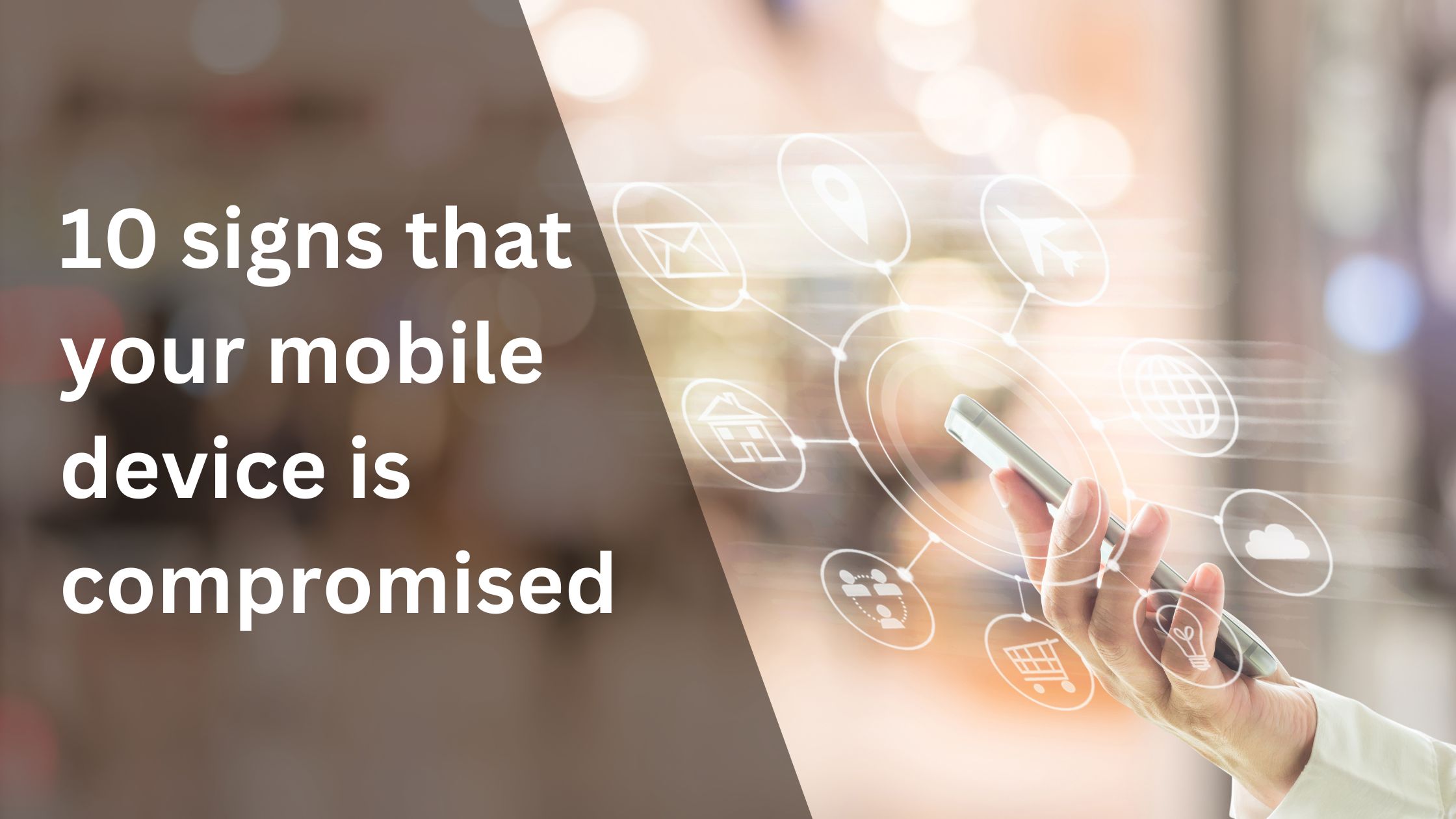
10 Signs That Your Mobile Device Is Compromised
From sending emails to using maps to navigate around, smartphones have become an integral part of our lives. We use them for so many different purposes, and in a nutshell, they have made our daily lives so much easier.
The fact that we use our mobiles so much is the primary reason why it has become the number one target for online hackers. Apple and Google are trying their best to stop malicious apps but still, virus-infected apps land into the app stores. These malicious apps are getting sneaker day by day, so it’s virtually impossible to spot a malicious app.
According to the McAfee 2020 Mobile Threat Report, more than half of malicious apps hide themselves on mobile phones. They hijack the device, don’t have a home screen icon, don’t appear in the app search list, and infect your device. Your mobile phone shows useless ads, adds irrelevant events to your calendar, drains the battery, and steals your personal information, which can be sold to third-party apps.
iPhones can also be hacked, but the primary target for online hackers is Android devices. As of March 2020, the total Android malware infections recorded amounted to 482,579 per month.
Virus and other types of malware:
Malware is malicious software that is designed with the intent to infiltrate your smartphone and cause harm. Malware includes computer worms, trojans, viruses, spyware, rootkits, adware, and ransomware. Cybercriminals use all these malware to access all your personal data. Implementing strategies like mobile hardening can help safeguard your smartphone from these threats.
How to avoid installing malicious apps: A short guide:
- Always download verified apps
- Always download from official sources like App Store or Google Play Store
- Read user reviews before downloading an app
- Never download a .apk file and install the app
- Remember to check what permissions the app is asking before installing it
- Keep a reputable antivirus app installed on your smartphone
How to tell if your phone is compromised:
There are a lot of warning signs that tell you that your phone is under attack. These signs range from poor performance to mysterious alerts and ads. Some of these signs are easy to ignore, but it is in your best interest to investigate these signs as soon as you encounter them.
- Battery drains fast:
It is common for a phone’s battery to decrease over time inevitably. Still, if your phone runs out of battery no matter how much you have charged it or the battery losses power despite minimal usage, then it could be a sign that your Android or iPhone has been compromised.
The reason for these faster battery drains is that the spyware is active in the background all the time, and as a result, it uses a lot of power that causes your phone to run out of battery.
- Phone runs hot:
Faster battery drain is not the only sign warning you that your phone might be compromised. Another common you can come across is that your phone runs hotter than usual. The phone is hot even if you are not using it. It means that your phone is running malicious spyware that is causing your phone to run hot due to increased background usage.
- Poor and sluggish performance:
If you notice that your phone is frequently freezing or certain apps are crashing, this can be due to some malware overloading your resources or clashing with other apps and services. One way to check this is by shutting down your phone completely. If your phone is compromised, it may not shut down correctly or, in some cases, even shut down completely.
Also, make sure that other functionalities on your phones are working properly without any delay. For example, you may face delays in receiving or sending texts or phone calls if your phone is compromised. These signs can be difficult to observe as everyone is multitasking and does not pay attention to such small details.
- Spiked data usage:
Spiked data usage is another sign of a compromised phone as malware or spyware apps run in the background to send information to the criminal server. Be sure to use a data usage app to track how much data is being sent from your device. Using the data usage, monitor the apps that are using data, and if you come across apps with abnormal data usage, get rid of them right away.
- Outgoing texts/calls you didn’t make:
If you notice texts and calls that you have not sent to the numbers from your contact list, then you may be dealing with a compromised device. If you encounter any such event, ensure to keep a close eye on this activity as there may be malware sitting on your phone that is forcing your phone to connect with unwanted hackers.
- Higher phone bills:
If you come across higher phone bills at the end of the month despite minimal usage, then it is alarming. It is highly possible that your phone houses some malware or spyware that is using your mobile network to communicate with the criminal server.
Apps mysteriously appear on the home screen:
Beware of the mysterious apps that pop up on your home screen or some weird settings on your iPhone or Android. Always keep an eye on apps that are installed and are running on your phone. If your phone starts to act crazy, check apps with abnormal usage patterns. These apps mostly contain malware.
- Unusual account activity:
If your Gmail or iCloud demonstrates weird behavior, it is a sign of a malicious attack and poses a severe threat to your personal data.
- Loss in signals:
This is the worst-case scenario. It is called is number porting attack. In this attack, you receive an email notification or text message about an account change that you did not make, and then after 30 minutes, your phone doesn’t have any signals. You also can not log in to your email account, and you cannot access your bank account.
- Spammy ads and pop-ups:
Another sign of a compromised phone is spammy pop-ups or weird ads. It is important to note that all pop-ups or ads do not mean that your device has been hacked. However, an increasing number of pop-ups or ads may be alarming.
If you face an increasing number of pop-ups or ads, then there is a high possibility that your phone is infected by a form of malware, specifically called adware. This adware forces your phone to view specific ads that generate revenue through clicks. To avoid this, always clear cookies on your phone to keep your phone safe from hackers that can manipulate the pop-ups.
Conclusion
It is not a good idea to wait and encounter any of these signs on your mobile phones. Protecting your Android or iOS device should be a top priority. Having a good antivirus software on your mobile or having in place a mobile apps security solution ensures the protection of personal data and prevents malware from spreading from device to device.




